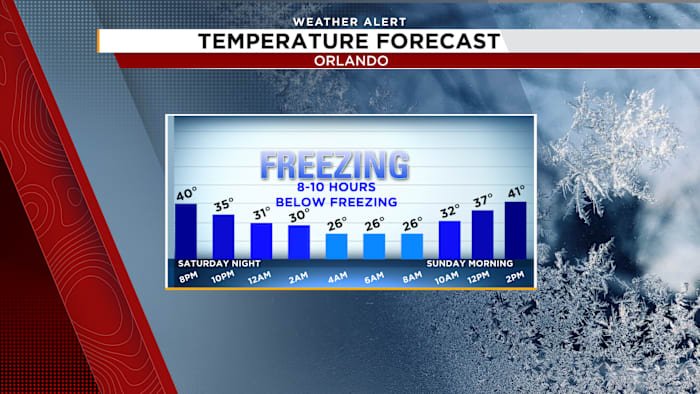Daily Orlando News – The future of Medicaid coverage is at the forefront of local discussion as Congress debates the introduction of work requirements for able-bodied adults. Across Orlando, thousands of residents who rely on Medicaid for essential healthcare are worried about the potential for losing coverage if new federal rules are enacted. This looming policy change has sparked intense debate within the community, highlighting the unique challenges faced by Orlando’s diverse population. In this post, we’ll break down what’s being proposed, explore the impact on Orlando families, hear from local voices, and examine what comes next.
Understanding the Proposed Medicaid Work Requirements
Medicaid is a joint federal and state program that provides health coverage to low-income individuals and families. Recently, some lawmakers in Congress have proposed adding a work requirement for able-bodied adults who receive Medicaid benefits. This would mean that recipients, except for those with disabilities, seniors, or caregivers, would need to prove they are working, volunteering, or participating in job training for a set number of hours each month.
Supporters of the requirement argue that it encourages employment and personal responsibility, potentially reducing reliance on government assistance. However, critics, including many healthcare advocates, warn that work requirements could strip coverage from thousands who are unable to meet the requirements due to barriers like lack of transportation, child care, or fluctuating job schedules—issues particularly relevant in Orlando’s service-driven economy.
The Orlando Perspective: Who Would Be Affected?
Orlando is home to a large population of Medicaid recipients, many of whom work in the tourism, hospitality, and service sectors. These industries often involve irregular hours, seasonal jobs, and temporary layoffs, making it difficult for employees to consistently meet work hour thresholds. For example, a hotel housekeeper or a theme park worker may experience periods of underemployment, especially during slow tourist seasons.
If the proposed requirements are enacted, local health advocates estimate that thousands of Orlando residents could lose their health coverage. According to Florida Department of Health statistics, more than 170,000 people in Orange County are currently enrolled in Medicaid. Many of these individuals are already working but may not be able to document their hours or participate in the specific activities required by the new rules.
Community Concerns: Voices from Orlando
For many Orlando families, Medicaid is a lifeline. Losing coverage could mean going without vital medications, skipping doctor’s appointments, or facing medical debt. Local organizations like the Primary Care Access Network (PCAN) and the Orlando Health system have spoken out against the work requirements, citing concerns over increased emergency room visits and worse health outcomes.
Maria Gonzalez, an Orlando resident and mother of two, shared her fears: “I work as a server, but my hours change every week. If I lose Medicaid, I don’t know how I’ll pay for my son’s asthma medication.” Stories like Maria’s are common in Orlando, where many families are already living paycheck-to-paycheck and have little flexibility to navigate new bureaucratic hurdles.
Potential Economic and Health Impacts on Orlando
The consequences of Medicaid work requirements could ripple throughout Orlando’s economy and healthcare system. Uninsured residents often delay seeking care, which can lead to more serious and costly health problems down the line. Hospitals and clinics may see an increase in uncompensated care, straining local resources and potentially resulting in higher healthcare costs for everyone.
Additionally, Orlando’s workforce could be affected. If workers lose coverage and become too sick to work, employers in the region’s crucial hospitality and tourism sectors could face higher absenteeism and turnover. This, in turn, could impact the city’s economic recovery from the pandemic and its reputation as a world-class destination.
Looking Ahead: What Can Orlando Residents Do?
With Congress still debating the specifics of Medicaid work requirements, there’s uncertainty about what the final policy will look like or when it might take effect. In the meantime, Orlando residents who rely on Medicaid are encouraged to stay informed and engaged. Local advocacy groups are urging people to contact their representatives, share their personal stories, and participate in community forums to ensure their voices are heard.
Resources like the Covering Central Florida network offer free assistance to help people navigate changes in health coverage or apply for alternative programs if needed. Keeping up to date with local news outlets like Daily Orlando News is also crucial as this policy debate unfolds.
Conclusion: Share Your Thoughts
The debate over Medicaid work requirements is far from over, and its outcome will have a significant impact on thousands of Orlando families. As our community faces the possibility of losing essential health coverage, it’s more important than ever to stay informed and involved. How do you think work requirements would affect Medicaid recipients in Orlando? Have you or someone you know faced challenges accessing healthcare? Leave a comment below—we want to hear your story.
















